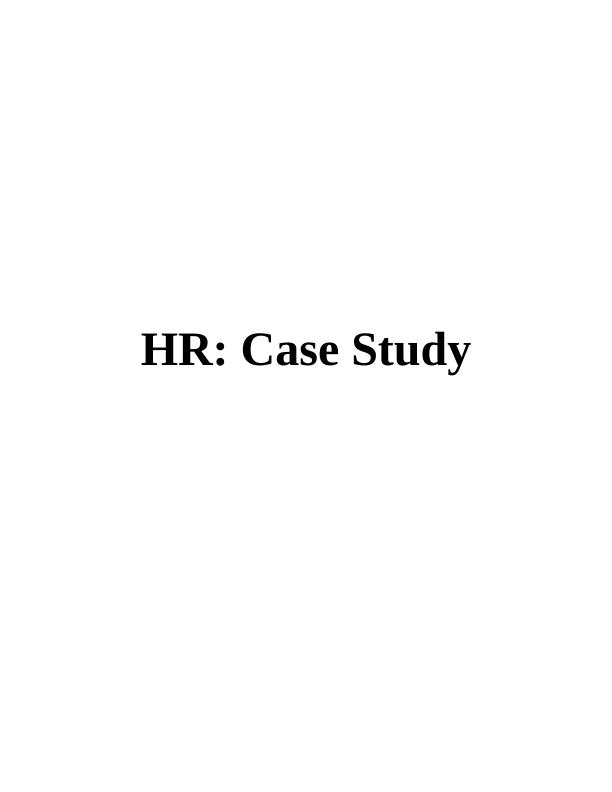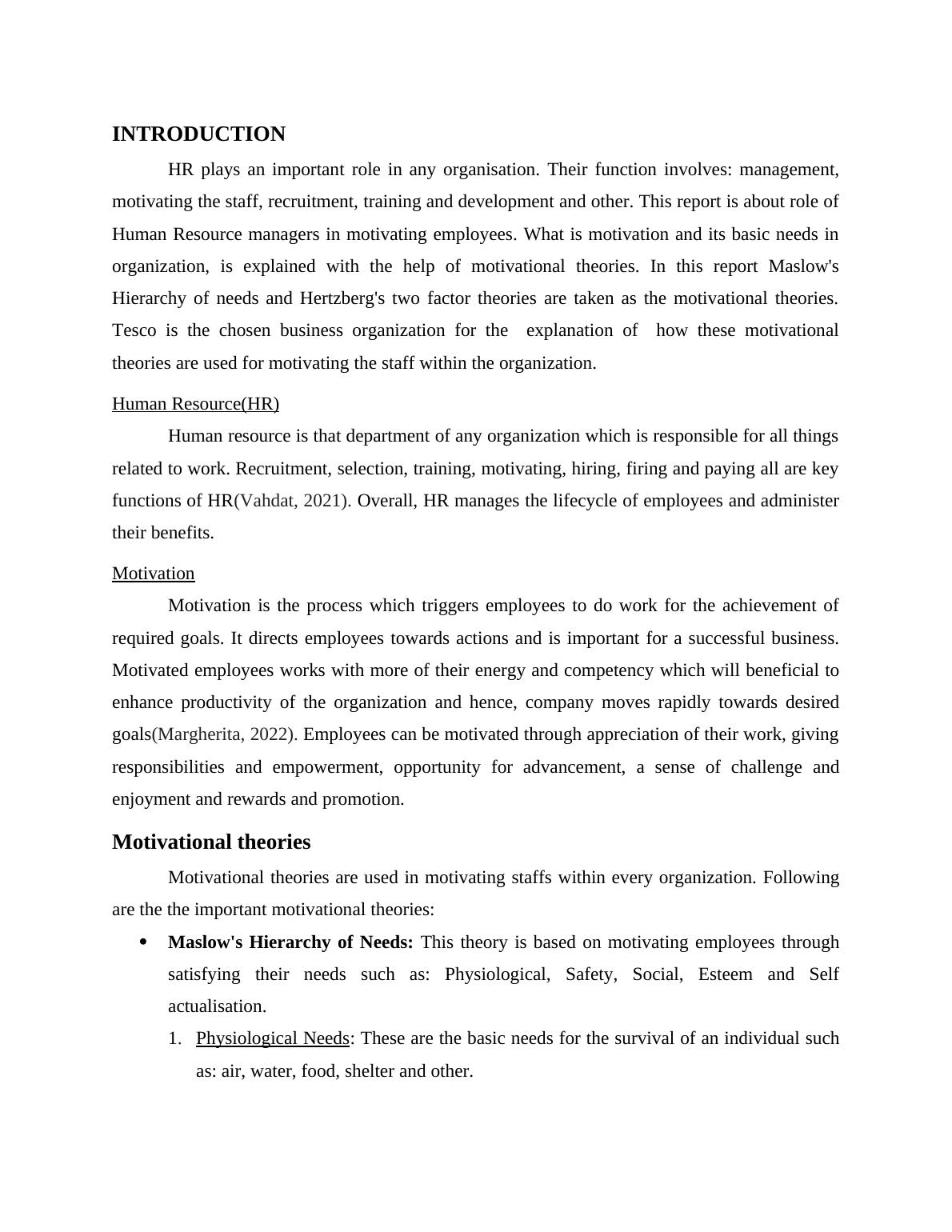Role of HR in Motivating Employees: A Case Study of Tesco
Added on 2023-06-07
5 Pages1244 Words169 Views
End of preview
Want to access all the pages? Upload your documents or become a member.
Introduction to Human Resource Management
|6
|1193
|23
Motivation: Content Theories and Criticisms
|12
|557
|391
Motivation Theories in TESCO
|6
|1427
|57
Finance and Financial Management: Functions and Sources of Finance
|10
|2361
|339
Human Resources and Motivation: A Study on Tesco plc
|8
|1312
|82
Motivating Staff: A Comparison of Maslow's Hierarchy of Needs and Herzberg's Two-Factor Theory
|4
|890
|392


